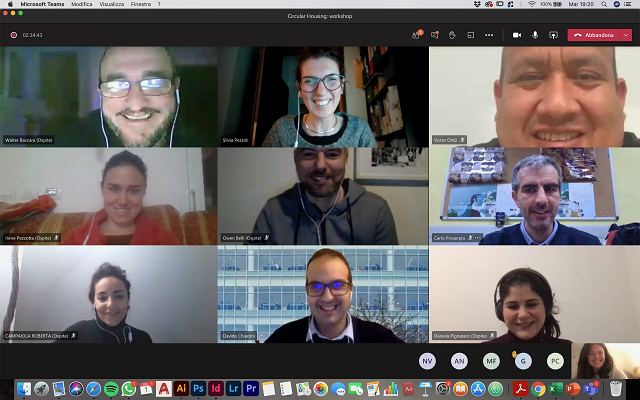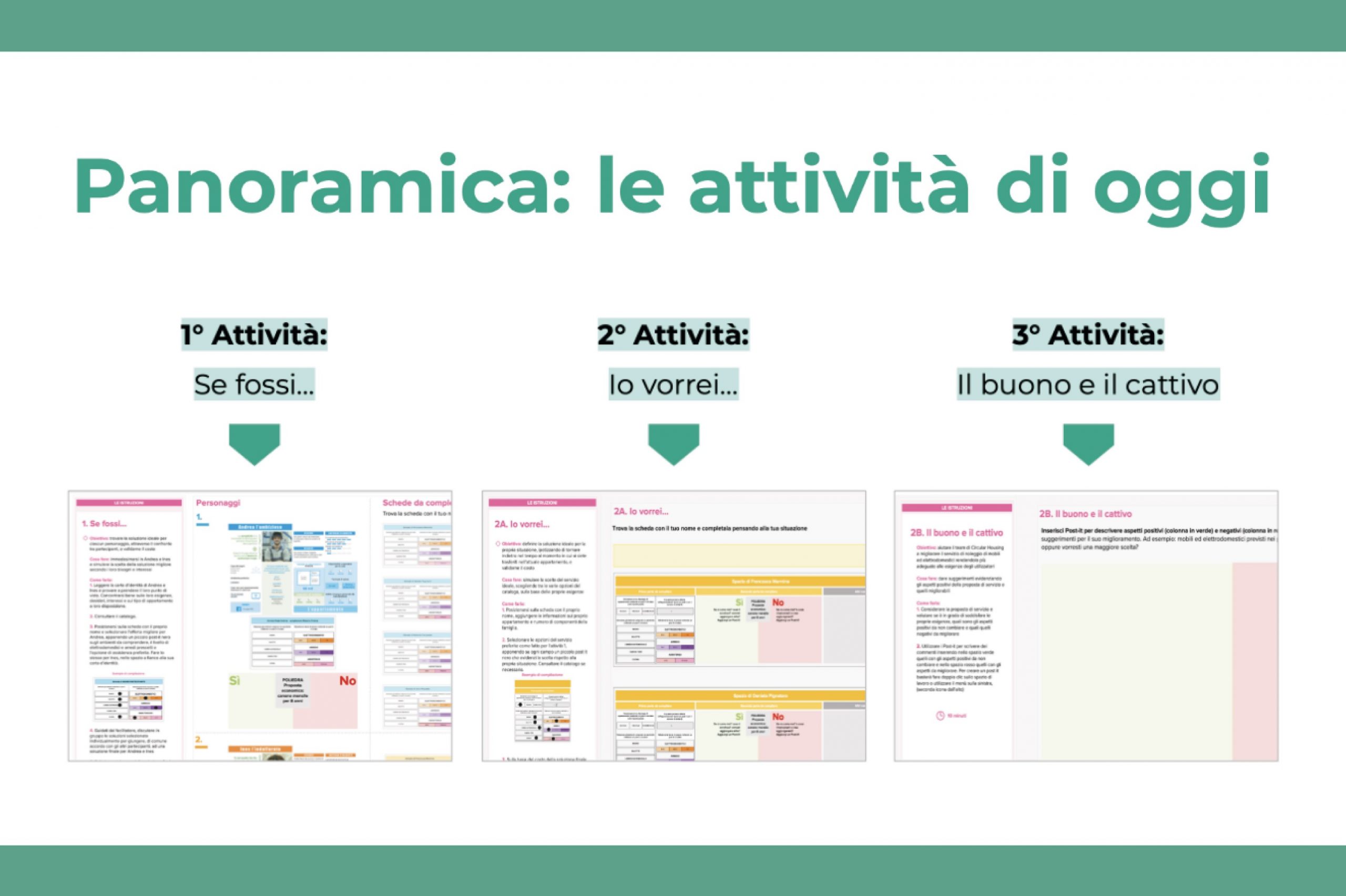The last appointment of the users’ engagement process developed by Poliedra as part of the Circular Housing project, supported by EIT Climate-KIC, was held on 1 December.
Circular Housing aims to design a new real estate rental paradigm capable of integrating an appliance and furniture rental service, helping to structure a circular and sustainable supply chain. In addition to Poliedra, the project partnership includes Redo SGR (lead partner), the Politecnico di Milano and Erion; among the stakeholders involved in the development of the model there are BSH group and Composad.
To define the business model in the most complete way, the user-centered design approach was adopted, which means putting the user at the center of the design, analyzing the habits, needs and preferences, defining possible future implementations together with the participants.
A sample of potential users, selected from the tenants of two Milanese social housing districts, were involved in an engagement process structured among three main steps: the Break the Ice Survey, with which was possible to collect habits and general opinions about the project; the Deep Down Survey that investigated potential users’ points of view on the new model in order to identify the key aspects for its design and the Mock-up workshop, during which the participants simulated the experience of customizing and purchasing the rental service, also expressing their opinion on the cost parameters.


The online workshop held last December 1st, that consisted of a first introductory session focused on giving detailed information about the service, like the functioning of it, the options offered and the explanation of the model values (sustainability, convenience, maintenance assistance / training, etc. ..) and a second section dedicated to simulating the purchase of the rental service. The workshop allowed the validation of the service through the work of the participants, who evaluated the proposed options and the coherence of the cost, expressing their opinions and giving further suggestions for improving the service.
The workshop participants proved to be very helpful and curious about both the model and the topics covered. The service was rated by most of them advantageous and interesting; the major strengths of the model highlighted related to the inclusion of the customer care, the flexibility of the offer, which includes different packages according to the apartment and the price range, the possibility to split the payment in monthly installments. The insights collected, which will be deepened to make the service even more attractive, related to the opportunity to have a physical display of the furniture, the possibility of selecting packages that can evolve over time towards higher price ranges, the introduction of packages with used furniture and the management of the early conclusion of the contract.
The most interesting aspect that emerged from the comparison with the participants, was their awareness about the necessity of changing mentality, to favor the transition from a traditional purchasing model that includes the possession of goods to a model that permits to rent them, but also, that allows everyone to adapt to the continuous changing conditions of the context and society in which we live.

